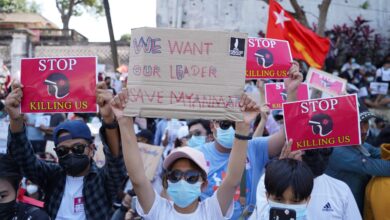Someone breaks their fast with alcohol and someone with different types of food

During the period of the Mughal emperors who ruled India for 300 years, the sighting of the Ramadan moon was announced by firing 11 cannons.The founder of the Mughal Empire, Zaheeruddin Muhammad Babur, wrote in his diary ‘Tazak Babri’ that Babur used to keep fasts and did not perform prayers, but he was addicted to alcohol and potions.
At one place, Babur writes that in the evening, he reached the place of Pizadi, broke his fast at the place of the Qazi and started to organize a drinking party, but the Qazi gave a warning. Out of respect for the judge, I postponed the drinking party. An illustrated edition of ‘Tazak Babri’ was prepared by Farrukh Baig in 1589.
Humayun also used to fast, Gul Badan Begum’s book ‘Humayun Nama’, however, mentions many times about their use of opium. Historian Abdul Qadir Badayuni has written that Humayun ‘was so generous that the workers of the finance department did not bring cash in front of him, and he was so gentle that he never spoke an abusive language.
Sarwat Sawlat writes in ‘A Brief History of the Nation of Islam’ that in the beginning, Akbar used to perform prayers in congregation, gave the adhan himself, led the imam and swept the mosque with his hand, but then there came a time when prayers, fasting, Hajj, Zakat were disregarded.
Badauni even says that Akbar banned prayer, fasting and Hajj, but Sri Ram Sharma has written in his book ‘The Religious Policy of Mughals’ that it is possible that Akbar himself stopped these practices but the ban Did not apply. He writes that ‘at least there is evidence from 1582 that fasts were being observed and in the same year Gul Badan Begum returned from Hajj and received a royal welcome.
John F. Richards in his book ‘The Mughal Empire’ states that Akbar walked to the shrine of Khwaja Moinuddin Chishti while fulfilling his vow. ‘He circumambulated the shrine there in the month of Ramadan, distributed gifts in Garba and came to Agra after ten days. Alamgir abolished the Nowruz festival shortly after his accession and instead preferred the Iftar ceremonies during the days of Eid al-Fitr and Eid al-Adha and Ramadan.
The importance of Eid-ul-Fitr also increased because his accession to the throne took place close to it, i.e. in Ramadan. Aurangzeb combined the two by extending his accession celebrations to Eid. The universal prayer was strictly followed by fasting. They would always pray in congregation, make special arrangements for taraweeh in Ramadan, and perform Itikaf in the last ten days of Ramadan. Similarly, they used to fast three days a week on Monday, Thursday and Friday.
He slept only three hours a day. After this celebration, Taraweeh was organized as follows: ‘Azan for Isha was called, preparations were made for prayer in Divan Khas. Baridar said: Karamat! The party is ready.
The king came out, prayed in congregation, listened to one and a half chapters of the Holy Quran in Taraweeh (Taraweehs); Then came to the sitting room, had some conversation, drank Bhanda (haqqa) and rested on the bed.’In simple language, it is forbidden to eat and drink during fasting from Fajr Azan to Maghrib Azan.




